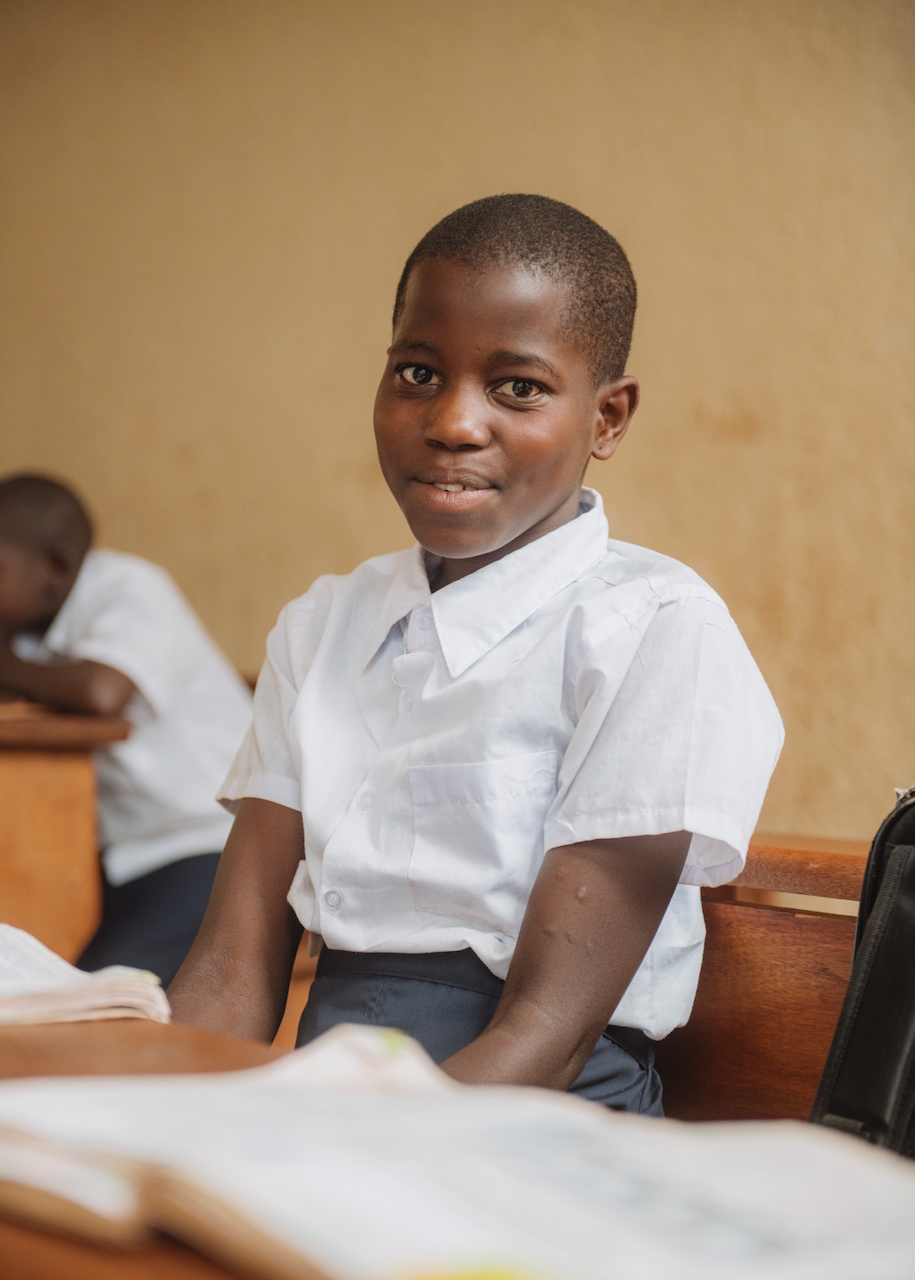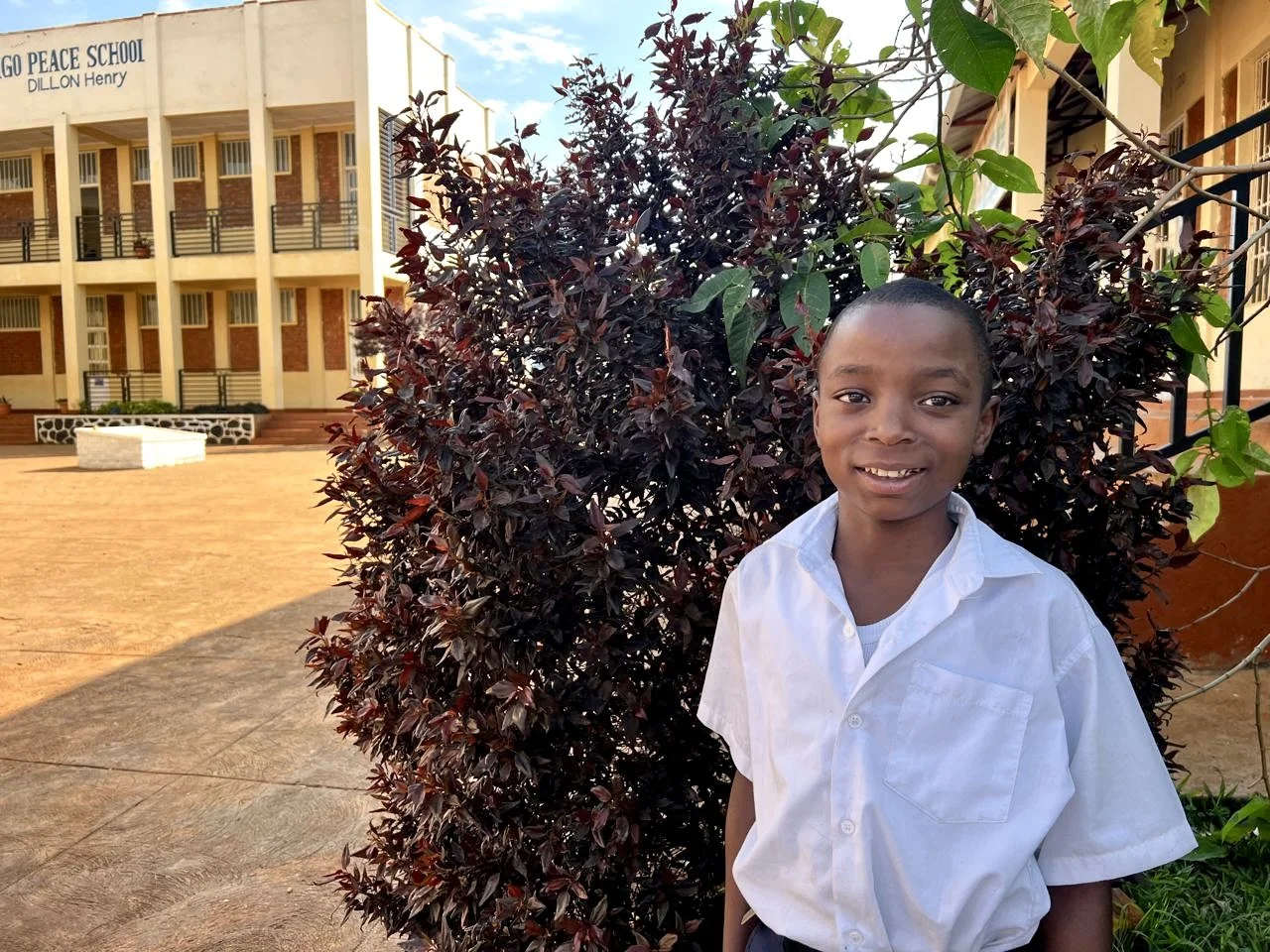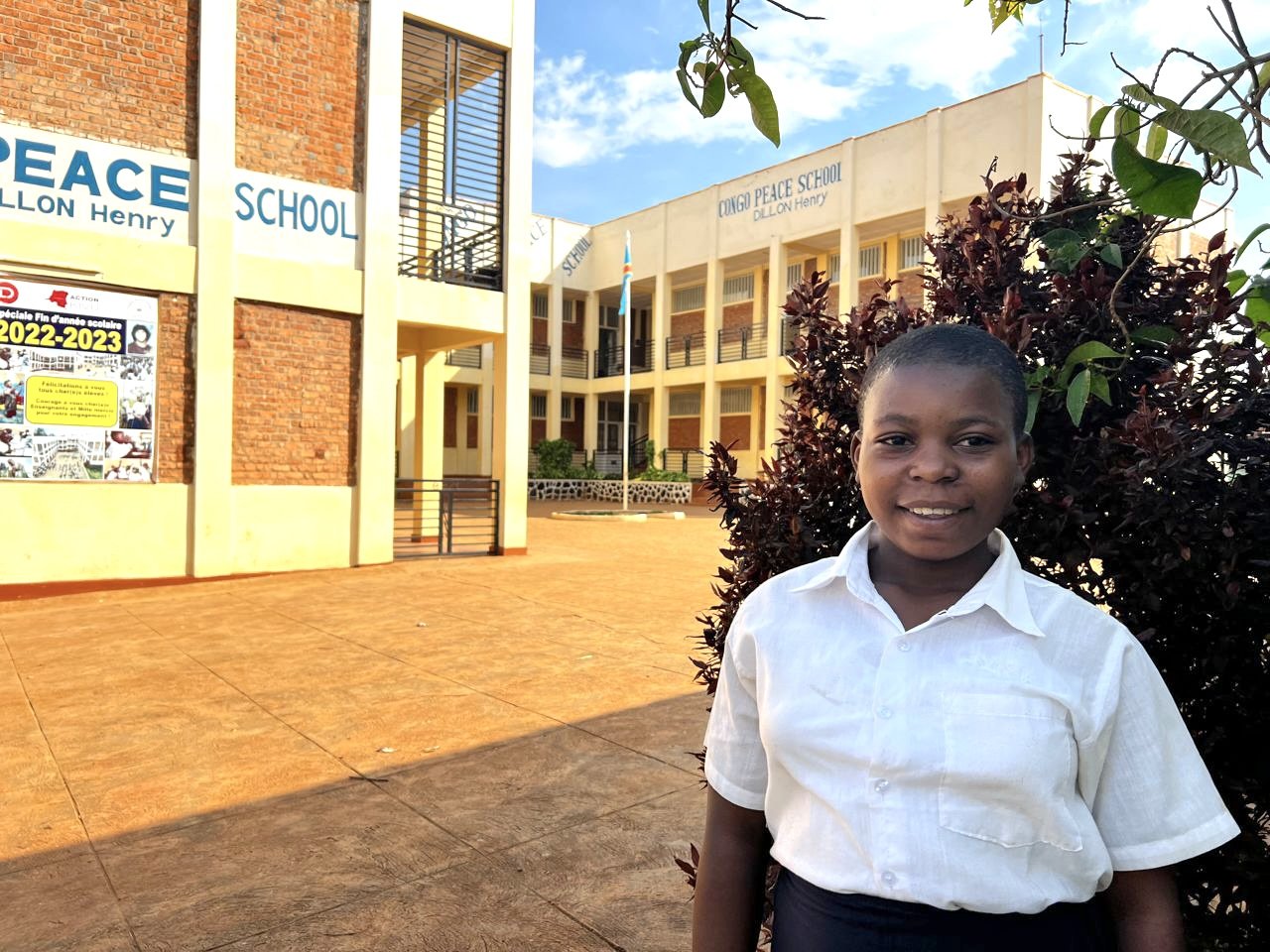"There are few worse places, if any, to be a child."
While we love to share the amazing impact your giving makes in the lives of the children and adults we partner with in eastern Congo, we also know it is important to share the horrific context in which these children we serve are not only surviving, but thriving.
As noted in the September 2023 press briefing from the UN’s children’s agency UNICEF on Congo (DRC) and specifically the eastern part of the country where we are located, “the war-torn country had the world's highest number of UN-verified violations against children in armed conflict.”
The violence "has reached unprecedented levels," said Grant Leaity, UNICEF's representative in the country. "There are few worse places, if any, to be a child."
“The east of the Democratic Republic of the Congo (DRC) is facing one of the world’s most complex and forgotten crises. Around 2.8 million children are bearing the brunt of violent conflict, being recruited by armed groups, losing their families and homes, and being exposed to ever-growing levels of sexual- and gender-based violence.” (ReliefWeb infographic here)
It’s a harrowing and difficult report to read, a content warning for sexual assault and violence against young children.
In this space where so many use violence to control innocent civilians, our Founding Director Amani Matabaro’s vision for active peace is revolutionary. Each week at the Congo Peace School, the students and staff focus on a principle of peace and nonviolence as taught by Martin Luther King, Jr.
This last week the focus was the development and interpretation of Principle Three of Kingian Nonviolence: Nonviolence Seeks to Defeat Injustice, or Evil, Not People.
Training the teachers, Amani helped them put the concept into vocabulary that is easier for the students to understand – to attack the forces of evil, not the persons doing evil, so the students and staff could focus on how to practice the principle in the context of eastern DRC.
Amani spoke to some of the Peace School students to ask how they understood the principle, and how they are putting it into practice in their own lives.
Amani’s respect for the students and treating them as equals has created so much joy in their interactions.
Anouarite Zirhumana joined the Peace School when it opened in 2018. An orphan, she had no one to send her to school, a common story of out-of-school children in Congo (in DRC public school *should* be free, but the teachers are typically not paid, so families must pay monthly school fees in addition to the cost of uniforms and books). Determined to learn, she had joined the Adult Literacy Program provided through Action Kivu’s funding, and when she learned about the Congo Peace School, she bravely asked Amani if she could attend. Six years later, in the 6th grade, she shares what Principle Three means to her in practice:
“If someone makes a part of the school dirty, we do not beat, bully or attack that person, we quickly clean that place and ask the person not to do it anymore.”
Justin Mushamuka: First grade secondary school (7th grade in U.S. system):
“Understanding Principle Three, it is clear that people can defeat injustice, and let justice prevail in our families, communities, and societies. For example, if there are people who do not respect equality between women and men, we do not need to attack them, but simply put equality in action. The representative of the entire Congo Peace School student body is a girl, it should not always be a boy.”
Ajuwa Masumbukao: Second grade in secondary school (8th grade in U.S. system)
“My favorite example of the use and practice of Principle Three in recent history is what former President Mandela did in South Africa fighting apartheid, not the people doing it and the result is that reconciliation was possible to build the South African nation.”
Kabika Bacirheba: Second grade in secondary school (8th grade in U.S. system)
“Principle Three means that people need to attack the root causes of the problems and not individuals doing the problems, otherwise injustice will continue on and on.”
Kabika’s statement truly sums up what happens if we don’t embrace Principle Three – if we only attack those people committing evil, the roots of the problems remain, and the cycle of violence continues. The people doing evil acts are part of a system of evil and injustice. How can we attack the root causes? In DRC, they are myriad, but many stem from a history of colonization and corruption and the theft of DRC’s minerals, mined by Congo’s people, women, men, and children who are often enslaved or paid a dollar a day, people who don’t reap any of the wealth that leaves their nation, and then powers the world’s electronics. Deep food insecurity and resulting malnutrition is exacerbated by militias fighting to control mineral-rich areas. Children die before they have a chance to change their world from preventable diseases such as cholera.
As it is not located in a mining area, The Congo Peace School is in a place of relative peace, but the students and staff and community are surrounded by the violence of militias and war, the threat of being recruited as a child soldier, and the extreme poverty that leads to malnutrition, child marriages, and gender-based violence.
From the UNICEF summary of remarks: “In the first three months of 2023, in North Kivu alone, more than 38,000 cases of sexual- and gender-based violence were reported. That’s a 37 per cent increase compared to the same time period in 2022. Said another way: in just one year, there have been 10,000 additional reports of sexual- and gender-based violence. Those are the ones reported. And in North Kivu alone.”
“As well as unprecedented levels of violence, the lives of children in eastern Congo are threatened by epidemics and malnutrition. Around 1.2 million children under five in the east are facing the risk of acute malnutrition.
UNICEF’s Leaity warned about the risk of "acceptance of something which is unacceptable."
"As the world looks away, we are failing the children of DRC," he said.
As partners in the Congo Peace School and Action Kivu’s other community-based projects, you are some of those who are not looking away. Together we are attacking the root causes of injustice through investing in education rooted in peace and nonviolence, providing practical resources for a different way to live in harmony with the planet and with one another. The students eat well and learn not only about nutrition, but how to grow healthy food with regenerative farming. An educated population will better understand their rights in elections, like the presidential one this December.
We’re also thrilled to share the news that Books for Congo just sent over 3,000 books for the Congo Peace School library – sourced in French and many from African authors – according to the list the school gave the organization for the needs of the library, from literature to the sciences to mathematics to social studies and languages from pre-K to adult level. The school’s wide selection of books opens the world to the children, staff, and their families.
Amani sees a direct impact of this unique access to books in the success of the students in their national exams as compared to other schools in the region. We look forward to sharing this access with the community and other schools in the region as the school begins a community access plan for the library, previously unseen in the area.
Take more action and share this post! We are actively fundraising to meet the school's budget this year and next and continue to fund our adult education, community health, and regenerative farming projects - help us grow our community of partners by sharing about this revolutionary and transformational work.
If you're not a monthly or annual donor, please consider a gift to support the children of Congo today.
Thank you for caring for the children of DRC and stang alongside them in imagining a different and peaceful future.







